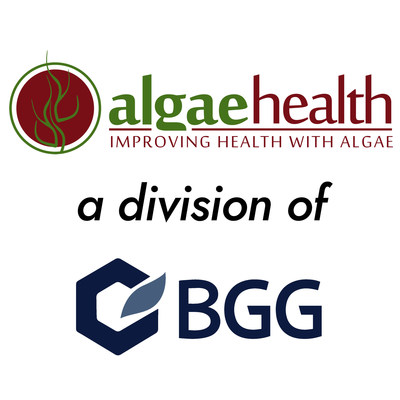Algae Health Sciences, a division of BGG, announced the peer-reviewed publication of a review paper which evaluates head-to-head studies comparing Astaxanthin from three different sources in animals and in-vitro
|
IRVINE, Calif., Jan. 29, 2020 /PRNewswire/ -- Algae Health Sciences, a division of BGG, announced the peer-reviewed publication of a review paper which evaluates head-to-head studies comparing Astaxanthin from three different sources in animals and in-vitro. In each case, Astaxanthin from the algal species Haematococcus pluvialis proved significantly more efficacious and biologically active than either Synthetic Astaxanthin or Astaxanthin from the genetically-mutated yeast called Phaffia. Six animal studies tested the different forms for a variety of health benefits and found the algal-based form performed significantly better for a variety of health benefits such as increasing lifespan; treating skin cancer; preventing the formation of gastric ulcers; improving resistance to stress; improving exercise endurance; decreasing reactive oxygen species (ROS); and augmenting enzyme levels. Furthermore, two antioxidant studies found that Algal Astaxanthin has 14X to 90X greater antioxidant activity than Synthetic Astaxanthin (Capelli, Talbott, Ding, 2019).
"In addition to these eight studies demonstrating superior efficacy and activity for Algal Astaxanthin, it's important to understand that there are absolutely no human clinical trials we found demonstrating any health benefit or even safety for the alternative Astaxanthin forms," said Shawn Talbott, PhD, President of EQQIL (a clinical research organization) who was an author of the review paper. "Until clinical trials are published on Synthetic Astaxanthin and Astaxanthin from Phaffia yeast showing efficacy and long-term human safety studies are conducted, our conclusion is that consumers should ensure that they're supplementing with algal-based Astaxanthin. Algal Astaxanthin has over 100 clinical trials showing efficacy, numerous human safety studies, and twenty years of consumer use in the market." "The consistency of the results of these eight different studies is noteworthy in that the algal form of Astaxanthin always came out on top," added Bob Capelli, lead author of the review paper. "In most of the studies, the differences in results between the three forms were quite striking." Reference: Capelli, B., Talbott, S., Ding, L. (2019). "Astaxanthin sources: Suitability for human health and nutrition." Functional Foods in Health and Disease 2019;9(6):430-445. Anyone wishing to receive the full paper should contact info@algaehealthsciences.com About Algae Health Sciences, Inc: Algae Health Sciences, Inc., a subsidiary of BGG, focuses on the production and marketing of efficacious ingredients from natural algae sources. With the second largest capacity to produce Natural Astaxanthin from microalgae, Algae Health Sciences plans to become the world's largest producer by 2022. Further Information on Algae Health Sciences: www.algaehealthsciences.com About BGG: BGG is a global B2B supplier of ingredients sourced from nature that improve consumer wellness. Building on 25 years of innovative leadership, BGG provides consumer product makers with efficacious ingredients of outstanding quality. This is achieved by specialized sourcing, cultivation and production in the best global regions. BGG employs a staff of approximately 450, has 6 production sites and manages sales in over 100 countries. BGG is ISO9001, ISO22000 and GMP certified. Further Information on BGG: www.bggworld.com Press Contacts:
SOURCE Algae Health Sciences, Inc. |






